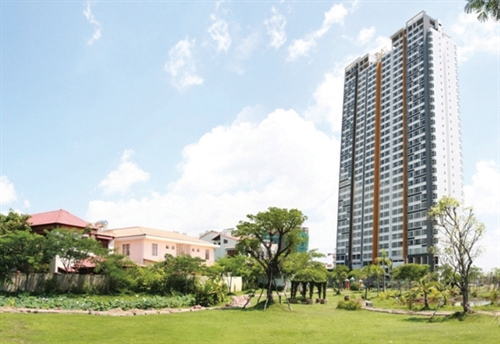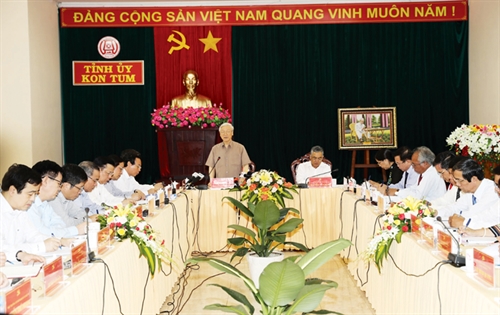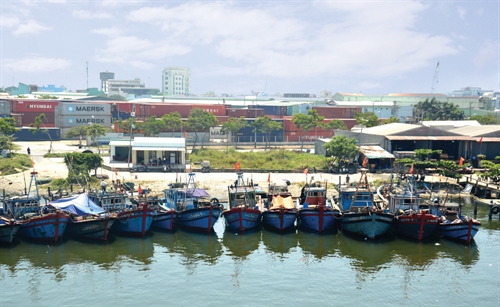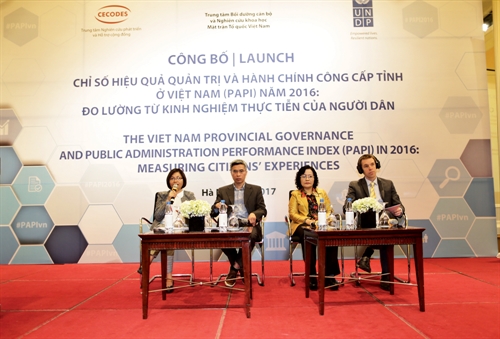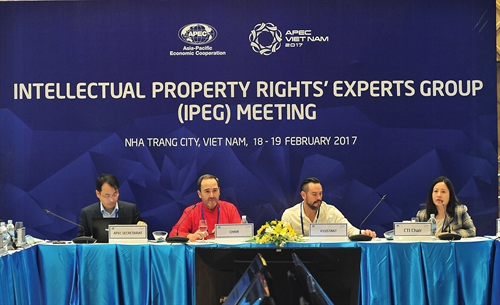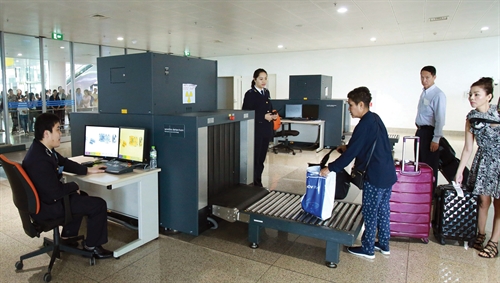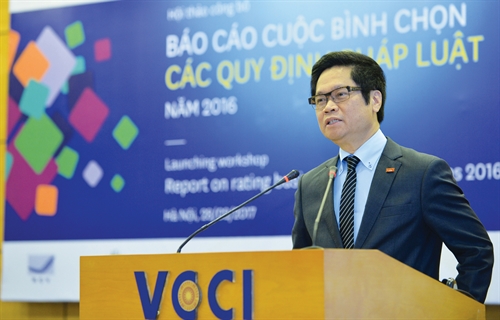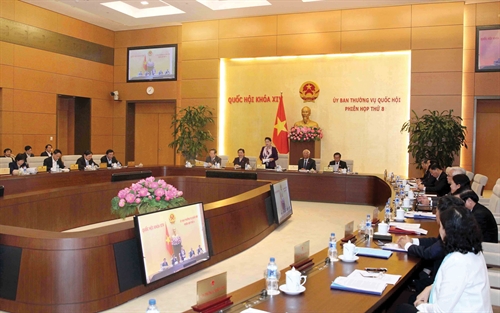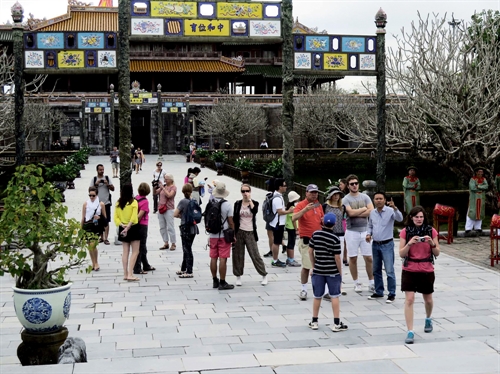The National Assembly (NA) of the 14th tenure is expected to pass 13 draft laws at its third session that opened on May 22 in Hanoi and scheduled to last until June 21, according to the session’s agenda.
To-be-passed laws include the Law revising a number of articles of the 2015 Penal Code and 12 others concerning railways; foreign trade management; management and use of weapons, explosives and supporting tools; support for small- and medium-sized enterprises; management and use of state property; irrigation; technology transfer; state compensation liability; guards; tourism; legal aid; and planning.
 |
| Deputy PM Truong Hoa Binh presents the Government’s report on implementation of socio-economic development and state budget tasks in 2016 and first months of 2017__Photo: Doan Tan/VNA |
NA deputies will also adopt five resolutions on enforcement of the Penal Code; law- and ordinance-making program for 2018; handling of non-performing loans of credit institutions; ratification of the Supplementary Treaty to the Vietnam-Laos Treaty on Boundary Delimitation; and ratification of the Protocol on Border Demarcation and Marker Planting between Vietnam and Laos.
Lawmakers will comment on the five draft laws pertaining public debt management; forest protection and development; fisheries; denunciations; and amendments to the Law on Credit Institutions.
According to Le Bo Linh, Deputy General Secretary of the NA, there are new points in the drafts to be presented to the NA at this session. For instance, the draft Law on Support for Small- and Medium-Sized Enterprises, designed as a framework law, sets out frame provisions and principles as a basis for the Government to make detailed provisions. To ensure consistency in the legal system, provisions that are likely to cause contradictions to or overlaps with or lead to revision of other laws have been removed from the draft.
Regarding the draft Planning Law, some matters that need further opinions of the NA include scope of regulation and subjects of application; interpretation of terms; system of master plans, such as national-level sectoral master plans, provincial master plans, and urban and rural master plans; and integration methods and coordination in the formulation of master plans.
The NA will give opinions on some provisions of the draft Law on Management and Use of State Property. They include competence of ministries, central agencies and People’s Committees at all levels, and tasks and powers of the NA; publicization of public property; handling of revenues from the disposal, liquidation and transfer of public property and compensation for land; and management of public infrastructure.
On the opening day of this session, the NA heard the Government’s report on implementation of socio-economic development and state budget tasks in 2016 and the first months of 2017, which says the consumer price index in April increased by 0.9 percent compared to December last year. Meanwhile, the interest rate was stable and is likely to fall. Credit growth climbed by 5.75 percent - the highest year-on-year level in six years.
The country’s export turnover surged 16.8 percent, mainly in processing and manufacturing industries, and agricultural products.
State budget collection fulfilled 32.7 percent of the set plan for the whole year, up 17.8 percent. Newly registered and added foreign direct investment hit USD 10.6 billion, up 40.5 percent.
Nearly 40,000 new businesses were registered over the first four months of this year, with a total additional capital of over USD 36,300 million.
However, GDP growth in the first quarter of this year reached only 5.1 percent, lower than that recorded in the same period last year (5.48 percent).
Deputy PM Truong Hoa Binh said ministries, sectors and localities need to take specific measures to achieve greater growth in the remaining quarters toward realizing the GDP growth target of 6.7 percent set for the year.
The Government had directed ministries, sectors and localities to focus on accelerating equitization, divestment and improvement of state-owned enterprises (SOEs), however the process remained slow, Binh said.
A steering committee was recently established to examine and set forth principles and solutions to handling each major loss-making project, he said.
The Government has also instructed related agencies to tighten environmental management and take numerous ways to protect the environment such as closing natural forests, reviewing hydropower projects and not licensing projects with high risk of polluting the environment, and imposing strict punishments on violators.
Binh said the Government has called for both immediate and long-term measures to deal with climate change, and prevent natural disasters, especially in Central, Central Highlands and Mekong Delta regions.- (VLLF)
